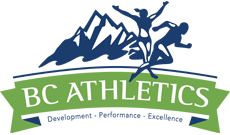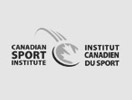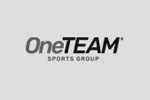Relative Energy Deficiency in Sports (RED-S)
Communique - B2ten iSHARE Think-Tank on Relative Energy Deficiency in Sports (RED-S)
– November 2019, Montreal, Canada -
Well publicized recent events regarding American teenage running sensation Mary Cain’s alleged physical and mental abuse at the hands of her coach† have exposed gaps in the ability of sport to protect an athlete’s well-being.
Athletes are driven to achieve excellence, and in some instances, are under heavy pressure to perform. One form of this pressure is often tied to being extremely lean. This creates a dynamic where athletes do not consume sufficient energy to replace what is being used, resulting in ongoing caloric deficits. This is what scientists refer to as Relative Energy Deficiency in Sport (RED-S). If the nutritional restrictions become chronic it pushes athletes to physical and mental breakdown. This collapse results in numerous negative health consequences, and the potential for decreased performance and increased risk of long term negative effects during and after an athletes career.
While ingrained in some sports culture, RED-S has only recently come into the public eye and all too often through stories from courageous athletes. RED-S is often driven by a sport system that aims to develop elite athletes at the highest possible rates. Athletes are surrounded by a team to optimize performance. However, when an athlete's health is not prioritized, bodies break down, and athletes often find themselves attempting to cope without appropriate support. For sport to flourish, we must succeed in prioritizing athlete health, which means affecting a shift in the current culture. Certainly, many sports in Canada, and their coaches and practitioners, are already implementing RED-S prevention, diagnosis and treatment best-practices. However, gaps in the system are still present and we need to aspire to have a sustainable, supportive and health driven approach in the pursuit of excellence across the entire system.
The complexity and relative underapprectation of RED-S also presents opportunities to address prevention of low energy availability and optimization of energy intake and performance.
In November 2019, B2ten hosted a RED-S working group of sport professionals comprised of internationally renowned topic experts, Canadian coaches, sport science and medicine practitioners, Canadian Sport Federations, Institutes, Own The Podium and B2ten.
The group spent three intensive days examining the science, current issues, gaps, and opportunities for female and male athletes, with a focus on optimizing female health and performance in sport as it pertains to all aspects of RED-S. Indeed, leanness is a requirement for success in some sports, but it was recognized athletes need to be supported and monitored to do this in a healthy way to avoid chronic RED-S – although much more research is needed. Some of the key themes explored included identifying current knowledge and developing strategies on how to effectively deal with RED-S challenges in the future, and included:
Prevention:
- Education for athletes from youth to elite, staff, coaches and parents. This would include the positive aspects of energy - that fuel is required for performance; RED-S signs/symptoms; tools to increase positive communication around menstrual cycles and body image; appreciation of athletes/sports at higher risk of RED-S; and best practices around body composition/weight assessment protocols and policies, including when and when not to implement these methods.
Diagnosis:
- Although progress has been made, a singular validated diagnosis for RED-S has yet to be established. This is due to the complexity and nuance of each case, and the material physiological and psychological differences between females and males, across age groups, and types of sports. As a result, more research is required to better define diagnostic tools.
- There is accumulating evidence relating RED-S to risk of injury and poor training adaptation and performance. Risk factors include: chronic dietary restriction and/or extreme dieting, continual and constant drive for thinness, significant changes in body weight or composition in short time periods, training inconsistencies and/or constant fatigue, poor libido, amenorrhea, two or more career stress fractures, and low bone mineral density.
Treatment:
- Further development of a referral network of experts in Canada is needed for RED-S and/or eating disorders with a focus on physicians, registered dietitians and psychologists.
- Shared responsibility of athlete support coaches, therapists, parents, peers, and others to help identify and then link athletes to the above referral networks.
The unfortunate reality is that thousands of people at all levels of sport have shared personal experiences around RED-S mismanagement and overt body shaming harassment. To achieve change, athletes need to be able to identify the condition and know how to protect themselves from toxic cultures. This distills down to understanding the power of food/energy and the negative impact of RED-S.
Given that RED-S risk factors are present in ~2 to 60% of athletes, includes both sexes in endurance, aesthetic, weigh-in, and power/sprint sports, this group believes that an initiative comprising education, awareness, diagnosis and treatment will positively impact the physical and mental well-being of athletes in Canada, thereby resulting in overall improved performances.
As done over the past years in the area of sport concussions, there is a need for the development of national policies relating to RED-S prevention, diagnosis and treatment protocols. In order to create genuine change it will be essential to target key stakeholders. Media is a powerful tool that can be leveraged as an effective means of spreading awareness about RED-S and its prevention. In addition, sponsors can provide support by requiring attention be given to optimizing athlete health and performance as a condition of their financial backing.
--
The individuals listed below have participated in the B2ten iSHARE on Female Health & Performance – November, 2019, Montreal, Canada and endorse this communication.
- Dr. Kathryn Ackerman – Conference Speaker - MD (Sports Med and Endocrinology), MPH, FACSM / Harvard and Boston Children’s Hospital / Author on IOC RED-S Consensus Statement
- Dr. Amy Baltzell – Conference Speaker - PhD, CMPC-AASP / Former Clinical Professor Boston University
- Susan Boegman - Conference Participant – Rowing & Swimming
- Meghan Buttle – Conference Participant - Figure Skating
- Marc-Antoine Christian - Conference Participant - Triathlon
- Kelly Drager - Conference Participant- Wrestling, Nordiq Canada, Biathlon, Figure Skating
- Remmelt Eldering – Conference Participant - Speed Skating
- Dr. Kirsty Elliott-Sale – Conference Speaker - PhD / Associate Professor, Nottingham Trent University
- Kelly Ann Erdman – Conference Participant - Speed Skating
- Dominick Gauthier – Conference Speaker & Organizer- Co-founder B2ten, Olympian, Olympic Coach, Public Speaker / Conference Consultation and Organizer
- Ida Heikura – Conference Participant - Future Canadian RED-S Researcher - Own the Podium
- Jennifer Heil – Conference Organizer - Olympic Gold Medalist, B2ten Advisory Board, Public Speaker, Right to Play and Because I’m a Girl Organizations / Conference Consultation and Organizer
- Dr. Sharleen Hoar – Conference Participant - Mountain Bike Cross Country
- Tiffany Hunting - Conference Participant – Judo
- Liz Johnson – Conference Participant - Swimming
- Dr. Dana Lis – Conference Speaker – RD, PhD / High Performance Sport Nutritionist / Project Scientist, Neurobiology, Physiology & Behavior, Intercollegiate Athletics, UC Davis, Consultant NBA, World Tour Cycling
- Dr. Alexia de Macar – Conference Participant - Diving
- Jean-François Mathieu - Conference Participant - Gymnastics
- Dr. Paddy McCluskey – Conference Participant- Athletics & Triathlon
- JD Miller – Conference Organizer - Co-founder and President of B2ten / Conference Consultation and Organizer
- Dr. Margo Mountjoy – Conference Speaker - MD (Sports Med), PhD, FACSM / McMaster University / IOC Games Group / FINA Medical Group / Lead author on IOC RED-S Consensus Statements
- Dr. Andy Van Neutegem – Conference Participant - Own the Podium
- Martha Purdy - Conference Participant - Gymnastics
- Terry Radchenko - Conference Participant - Athletics
- Chris Rozdilsky - Conference Participant – Cycling
- Paulo Saldanha – Conference Speaker – Performance Director – ICA (Israel Cycling Academy) World Tour Professional Cycling Team / Sports Physiologist and Coach / Owner Cycling PowerWatts / Conference Consultation and Organizer
- Dr. Ben Sporer – Vancouver Whitecaps FC – Director Performance Strategy, Research and Innovation; UBC/UVIC Adjunct; Resync - Integrated Performance Solutions / Conference Consultation and Organizer
- Hilary Stellingwerff – 2-time Olympian / UVIC Head Coach / Conference Consultation and Organizer
- Dr. Trent Stellingwerff – Conference Speaker – PhD / Director Performance Solutions – Canadian Sport Institute Pacific / UVIC & UBC Adjunct / Athletics Canada SSSM Lead / Conference Consultation and Organizer
- Jen Sygo - Conference Participant – Athletics & Gymnastics
--
Relative Energy Deficiency in Sport (RED-S) Resources IOC consensus statement on relative energy deficiency in sport (RED-S): 2018 update (https://bjsm.bmj.com/content/52/11/687)
Other stories on the topic:
- https://www.nytimes.com/2019/11/07/opinion/nike-running-mary-cain.html
- https://www.nytimes.com/2019/11/16/opinion/girls-sports.html
- https://www.nytimes.com/2019/11/14/sports/olympics/alberto-salazar-nike.html
- https://www.telegraph.co.uk/athletics/2019/11/14/special-report-british-female-athletes-reveal-culture-fat-shaming/









